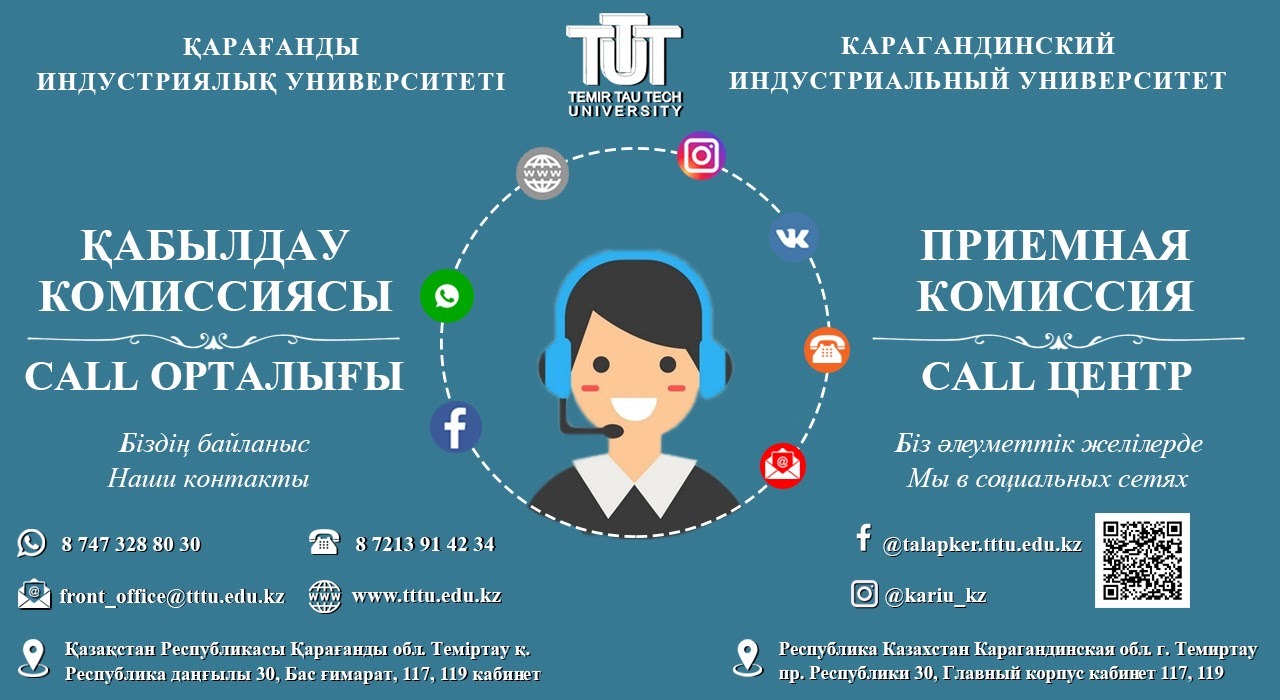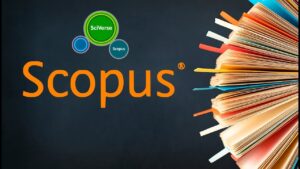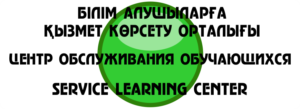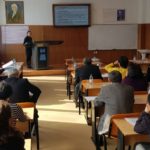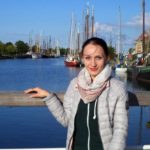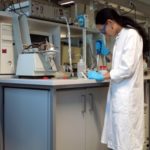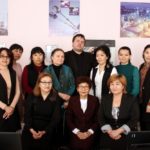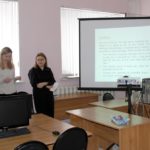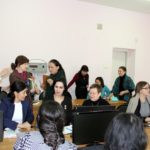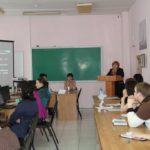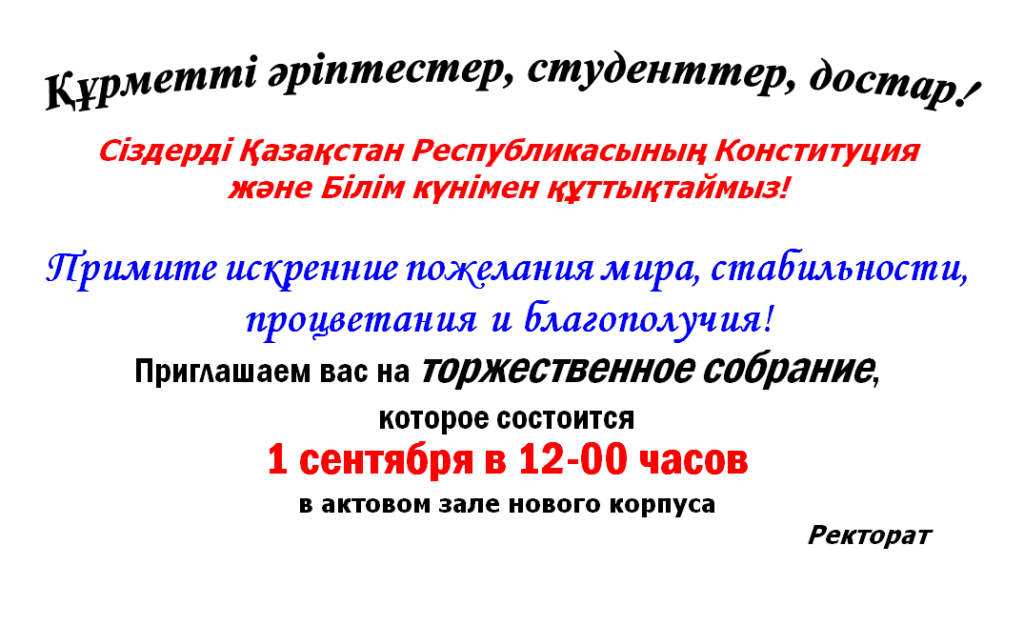From Bachelor to Doctor
A graduate of the magistracy of the KSIU of the specialty “Chemical technology of organic substances” Galina Arbuz three years ago was sent to the PhD doctoral studies of the Kazakh National University named by Al-Farabi (Almaty). Recently she defended her thesis on the specialty “Chemical technology of inorganic substances”.
In 2012 Galina Arbuz graduated from the Faculty of Chemistry of the KarSU named by Buketov with the assignment of a bachelor’s degree in the specialty “Chemical technology of inorganic substances”, after which she entered the magistracy of the Karaganda State Industrial University. In 2014 she graduated from the Faculty of Mechanical Engineering and Automation with the assignment of a Master’s degree in the specialty “Chemical Technology of Organic Substances”.
From September 2014 to September 2017, Arbuz G. was trained in PhD-doctoral studies of the Faculty of Chemistry and Chemical Technology of the Kazakh National University named by Al-Farabi (Almaty) on the specialty “Chemical technology of inorganic substances”. The doctoral dissertation was devoted to the development of modified electrodes with a synergistic effect based on new carriers and polyvalent metals.
Galina Arbuz’s research is aimed at obtaining in the future new more effective composite materials, their use for electrocatalytic processes of synthesis of compounds, both organic and inorganic, and the production of electrochemical sensors. The latter direction is especially important in the world scientific community, since the synthesis of effective sensory systems based on nanomaterials containing polyvalent metals and their oxides, through their stabilization on sorption materials from plant raw materials, opens up great economic prospects. Sources of similar sorption materials are plant waste, the complex use of which, given the trend of creating wasteless technologies, is important.
In this work, rice husks were selected as raw materials for the preparation of the electrode composite material and its further modification, which is promising, having low cost, renewable plant raw materials of Kazakhstan with good sorption properties.
The scientific consultants of the thesis were doctor chemical science professor Kamysbaev Duysek Haysagalievich (KazNU named by al-Farabi) and professor Fritz Scholz (University of Greifswald, Germany).
During the training Galina Arbuz passed two foreign scientific internships with the implementation of a joint research program at the University of Greifswald, one of the oldest universities in Germany. Prior to the defense, she worked at the Center for Physical and Chemical Methods of Research and Analysis, where she took part in various research projects within the framework of state grant financing.
Press-service of KSIU
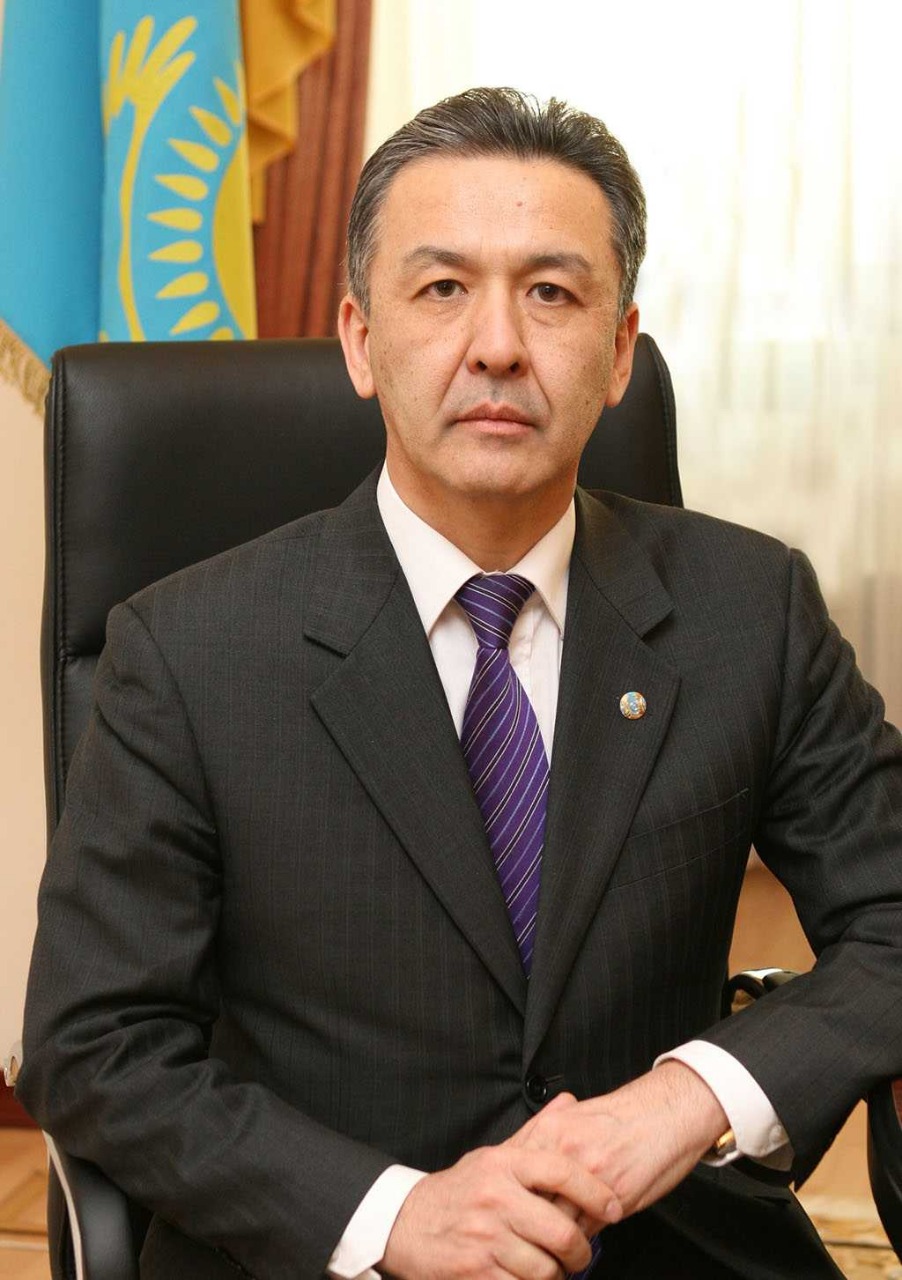 For the period of 50 years Karaganda Industrial University, founded in 1963, has become one of the leading higher ...
For the period of 50 years Karaganda Industrial University, founded in 1963, has become one of the leading higher ...